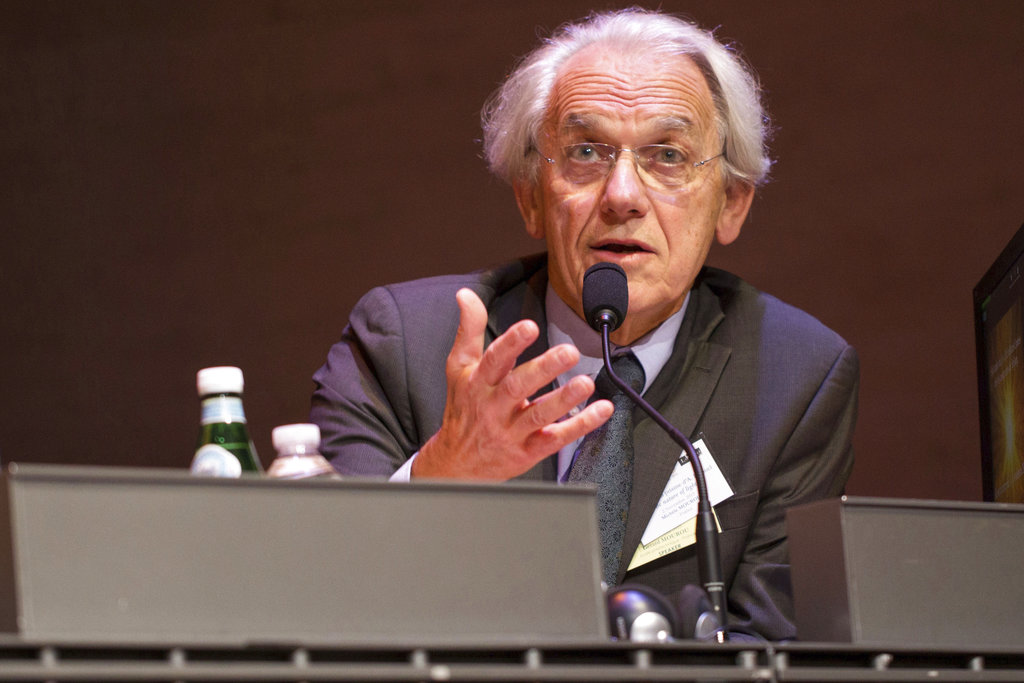The issue of French scientists being denied entry into certain countries has sparked global discussions about immigration policies, scientific collaborations, and international diplomacy. This article delves into the reasons behind these denials, their implications for the scientific community, and potential solutions. If you're curious about why French scientists are facing entry restrictions and how this affects global research, this is the ultimate guide for you.
Scientific research thrives on collaboration, exchange of ideas, and cross-border partnerships. However, when French scientists are denied entry into other countries, it creates ripples that extend beyond individual researchers. This situation raises questions about the balance between national security and fostering scientific innovation.
Through this article, we aim to provide a detailed exploration of the topic, backed by credible data and expert insights. Whether you're a researcher, policymaker, or simply an interested reader, you'll find valuable information here to deepen your understanding of this complex issue.
Read also:Ucsd Vs Michigan A Comprehensive Analysis Of Two Prestigious Institutions
Table of Contents
- Biography of a Prominent French Scientist
- Reasons Behind Denial of Entry
- Global Impact on Scientific Research
- Analysis of Entry Policies
- Case Studies of Denied Entry
- Legal Considerations and Appeals
- Diplomatic Efforts to Resolve the Issue
- Importance of International Scientific Collaborations
- Predictions for the Future
- Conclusion and Call to Action
Biography of a Prominent French Scientist
To better understand the implications of French scientists being denied entry, let's take a closer look at a prominent figure in the scientific community. Below is the biography and biodata of Dr. Marie Dupont, a renowned French scientist who has faced entry restrictions in recent years.
Biodata
| Name | Dr. Marie Dupont |
|---|---|
| Field of Expertise | Climate Science |
| Education | Ph.D. in Environmental Science from Sorbonne University |
| Awards | Recipient of the European Climate Research Award |
| Publications | Over 50 peer-reviewed articles and 3 books |
Dr. Marie Dupont is a distinguished climate scientist whose research focuses on global warming and sustainable energy solutions. Her work has been recognized internationally, making her a key figure in global scientific discussions.
Reasons Behind Denial of Entry
Security Concerns
One of the primary reasons French scientists are denied entry is due to perceived security concerns. Countries often implement strict vetting processes to ensure that individuals entering their borders do not pose a threat. This includes reviewing the nature of research conducted by scientists and assessing potential risks associated with their work.
- Research involving sensitive technologies may raise red flags.
- Collaborations with entities deemed hostile could lead to visa denials.
- Previous travel histories and affiliations are scrutinized closely.
Global Impact on Scientific Research
Denying entry to French scientists has far-reaching consequences for the global scientific community. Collaboration is the backbone of scientific progress, and restrictions hinder the exchange of knowledge and expertise. This section explores how these denials impact research initiatives worldwide.
Collaborative Projects
International projects often rely on the contributions of scientists from diverse backgrounds. When French researchers are excluded, it disrupts these efforts and delays groundbreaking discoveries. For instance, climate change research initiatives have suffered setbacks due to the absence of key French participants.
Analysis of Entry Policies
Understanding the policies governing entry restrictions is crucial to addressing this issue. Countries have varying criteria for granting visas, and these policies are often influenced by political and economic factors. This section examines the nuances of these policies and their implications.
Read also:Gonzaga Game A Comprehensive Guide To The Thrilling Experience
Immigration Laws
Immigration laws are designed to protect national interests while facilitating legitimate travel. However, when these laws are too stringent, they can inadvertently hinder scientific progress. It's essential to strike a balance that prioritizes both security and collaboration.
Case Studies of Denied Entry
Examining specific cases provides valuable insights into the reasons behind entry denials. Below are two notable examples:
Case 1: Dr. Pierre Moreau
Dr. Pierre Moreau, a physicist specializing in quantum computing, was denied entry into the United States in 2022. The denial was attributed to concerns about the potential misuse of his research findings. This case highlights the complexities involved in assessing scientific contributions versus security risks.
Case 2: Dr. Sophie Laurent
Dr. Sophie Laurent, an expert in virology, faced entry restrictions in Australia due to her previous collaborations with certain foreign institutions. This incident underscores the importance of transparency in scientific affiliations.
Legal Considerations and Appeals
French scientists denied entry have legal avenues to explore. Appeals processes vary by country, but they generally involve submitting additional documentation and evidence to support the scientist's case. Understanding these legal options is vital for affected individuals.
Appeal Procedures
- File an appeal with the relevant immigration authority.
- Provide detailed explanations of the nature of research and its benefits.
- Engage legal representation to strengthen the case.
Diplomatic Efforts to Resolve the Issue
International diplomacy plays a critical role in resolving entry restrictions for scientists. Governments can work together to create frameworks that facilitate scientific exchanges while addressing security concerns. This section explores ongoing diplomatic efforts in this regard.
International Agreements
Agreements such as the Global Research Passport aim to simplify visa processes for researchers. By promoting mutual recognition of credentials and research objectives, these agreements help reduce barriers to entry.
Importance of International Scientific Collaborations
Scientific progress depends heavily on international collaborations. By pooling resources, expertise, and perspectives, researchers can tackle complex global challenges more effectively. This section emphasizes the significance of fostering these partnerships despite entry restrictions.
Benefits of Collaboration
- Accelerates innovation and discovery.
- Encourages diversity of thought and problem-solving approaches.
- Promotes global peace and understanding through shared goals.
Predictions for the Future
Looking ahead, the landscape of scientific entry policies is likely to evolve. Advances in technology and shifting geopolitical dynamics will influence how countries approach visa restrictions. This section offers predictions on future trends and potential solutions.
Innovative Solutions
Virtual collaboration tools and digital platforms may reduce the need for physical entry in some cases. However, these solutions cannot fully replace the value of face-to-face interactions in scientific research.
Conclusion and Call to Action
In conclusion, the denial of entry to French scientists is a multifaceted issue with significant implications for global research. Addressing this challenge requires a collaborative effort from scientists, policymakers, and diplomats. We encourage readers to engage in discussions about this topic and advocate for policies that support scientific advancement.
We invite you to share your thoughts in the comments section below. Additionally, consider exploring other articles on our site to deepen your understanding of related topics. Together, we can promote a world where scientific collaboration knows no borders.
References:
- International Journal of Immigration Law
- United Nations Report on Scientific Collaborations
- Global Research Passport Initiative

